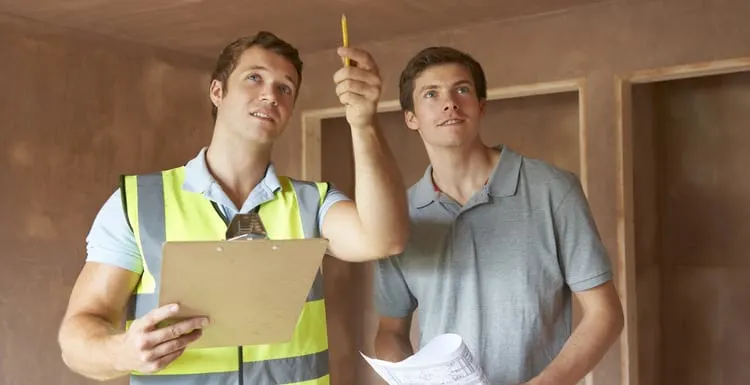You’ve made an offer, it’s been accepted, and you’ve scheduled a home inspection. You can learn important things about your potential new home during this process.
This means being there during the inspection, knowing what questions to ask home inspectors, and understanding when issues will turn into bigger, more expensive problems down the road.
You might think your home inspectors’ job is to just walk around, analyze the home, and indicate the biggest flaws. But that’s only one part of what they do!
What Home Inspectors Do
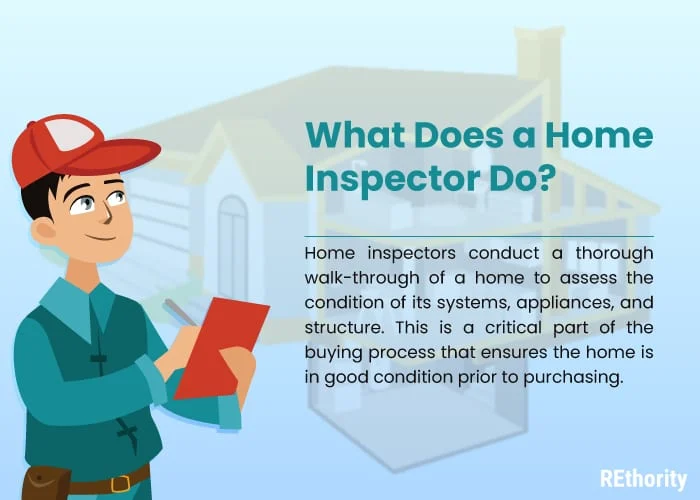
Home inspectors are highly trained, knowledgeable professionals who are more than willing to explain each step of the process.
And when a potential homeowner has questions, they’re always happy to answer. The problem for many potential buyers is not knowing what questions to ask home inspectors.
No one likes asking a question that might come across as silly or obvious. But it’s important to remember that home inspectors know that buyers aren’t inspection experts.
They expect you to have questions, and they’re more than ready to answer them. Just like your elementary school teachers probably told you, there’s no such thing as a stupid question.
By chatting with your home inspector and asking about a few specific things, you can get a wealth of information you might have otherwise missed.
The seven questions below are the most important to squeeze in during the inspection. Be sure to read to the very end; there’s some good stuff in here!
7 Questions to Ask Home Inspectors During the Inspection
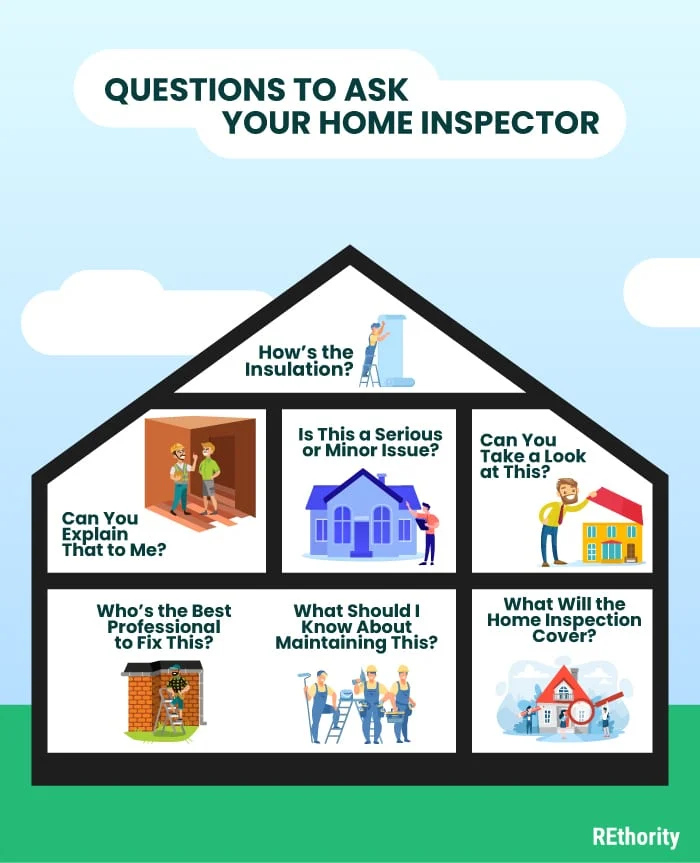
When you schedule an appointment with your home inspector, make sure you’re available to attend the inspection.
Attending the home inspection is like getting a crash course on the maintenance and condition of what very well may be your new home.
You can make the most of this one-on-one lesson by knowing what questions to ask your home inspector. They’ll provide answers that shed light on big problems, potential issues with the house, and indicators of future problems that may arise.
The questions below are intended to be asked during or after the inspection. Remember that home inspectors are there to inspect, explain, and point out problems, not offer advice on whether a house is a smart purchase.
They can give you the information you need to make your final decision on whether to buy the house, but the decision itself is up to you.
Here’s what you should ask home inspectors to learn as much as you can about a house before moving forward with the purchase.
1. What Will the Inspection Cover?
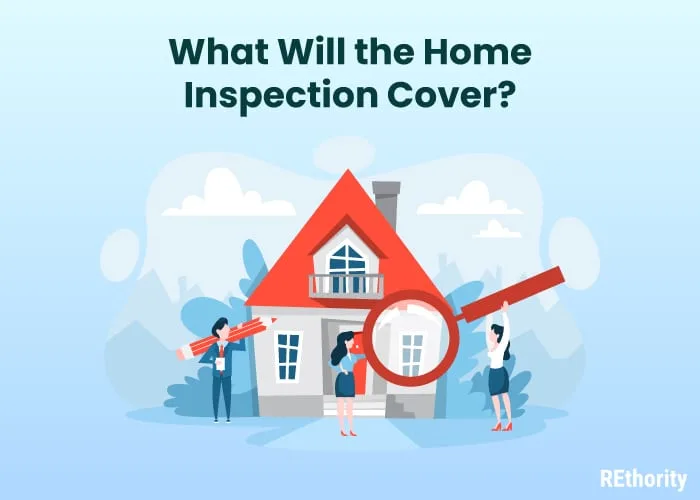
Upon meeting with the inspector, you should ask for an overview of what exactly will be covered in the inspection. Managing expectations is important.
You don’t want to wrongly assume they’re inspecting something and discover a major problem there six months down the road.
A complete home inspection checklist should look for and inspect the following items:
- Water damage (visible and hidden)
- Smoke damage
- Mold and mildew problems
- Foundation issues
- Plumbing problems
- Electrical shorts or issues
- Lack of compliance with building codes
- Cracks in walls or floors
- Working smoke and carbon monoxide detectors
- Appliance problems or malfunctions
- Damaged seals, caulking and drafts
- Inadequate insulation or insulation containing asbestos
- Energy efficiency
- Damaged or old roof
- Inadequate water filtration
- Other signs of damage or needed repairs
Your home inspector should look over these things and possibly more. When you ask what they’ll cover, you may only get a partial list, but you’ll be able to note what they’re inspecting as you move through the house with them.
Don’t be afraid to ask what they’re checking out along the way. After all, you’re the paying customer, and the inspector is there to ensure the home is in tip-top shape before you buy it.
2. Can You Explain That to Me?
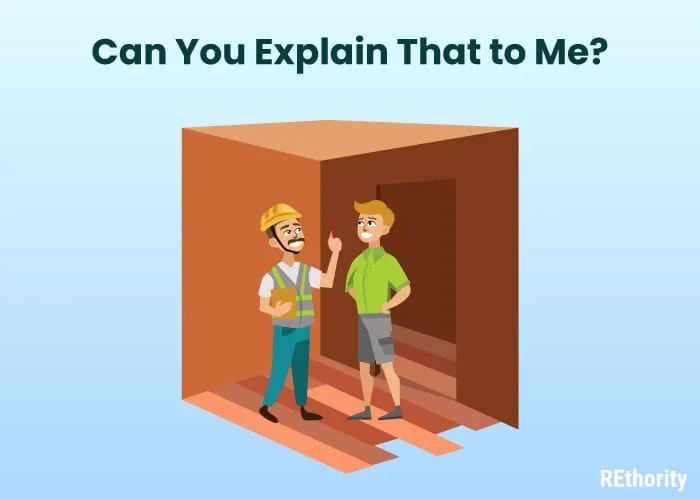
You’ll probably hear the home inspector mention a few terms or problems that you’re unfamiliar with. This is the perfect time to ask for a more detailed explanation.
If your inspector says, “Looks like this wiring was done in the 70s,” ask what that means for you. This simple follow-up question would reveal that building and electrical codes have changed significantly since then.
They may require rewiring, additional outlets, and GFCI outlets to be brought up to code in certain rooms. That’s a big piece of information you could have missed!
As professionals in their field, home inspectors may also get used to using industry terminology. A quick request for a simplified version or more information will remind them to put things into layman’s terms.
3. Is This a Serious or Minor Issue?
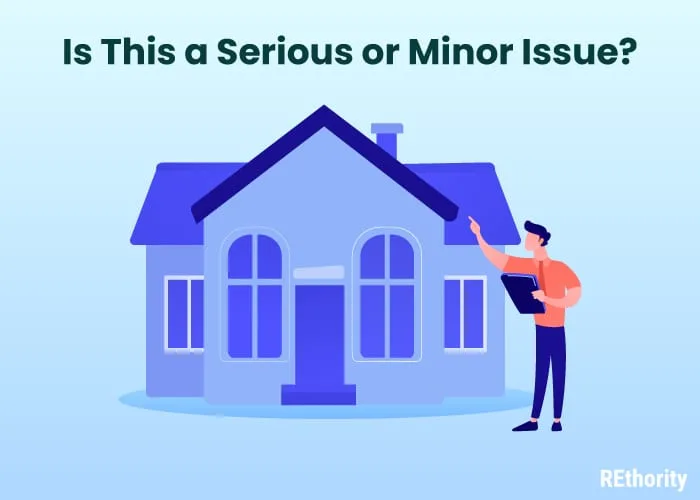
Don’t wait to ask your real estate agent if something in the home inspector’s report is a big deal or not. Ask them during the inspection.
If they point out water damage in one of the rooms, ask if the fix is relatively simple or if it could be a serious problem. Your home inspector should have plenty of experience with the issues encountered.
When an issue is identified, just ask whether or not a problem is something to worry about or if it should weigh into your decision to buy the house.
The inspector can also let you know whether it’s something that should be included in your request for repairs to be made by the seller.
4. How’s the Insulation?
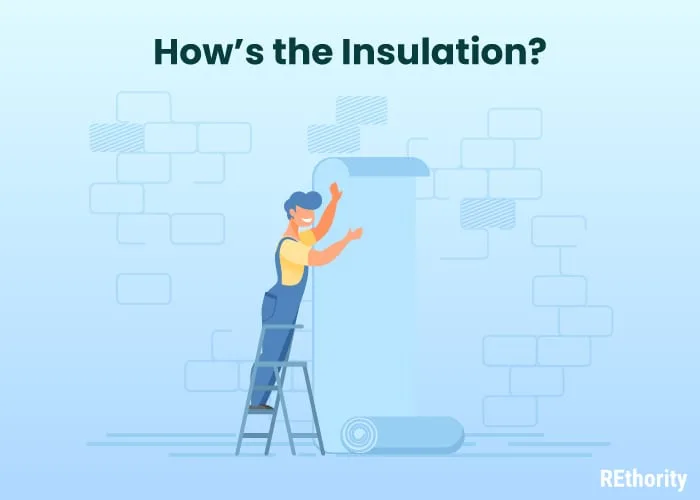
The insulation should be covered in a full home inspection, but it’s smart to specifically ask about it. You might discover that the insulation is not a major problem, but that it seems to have slid down (common with fiberglass batting) or may need to be replaced soon.
A good home inspector will also recommend what type of insulation will be best if you do need to replace it. For example, they may suggest adding spray foam insulation because of its low cost.
Many home inspectors use thermal or forward-looking infrared cameras (FLIR) to see potentially hidden issues like water damage, insulation coverage and quality, and hotspots throughout the home.
They may even provide you with infrared photos that show the temperature differences and areas that need attention.
5. Can You Take a Look at This?
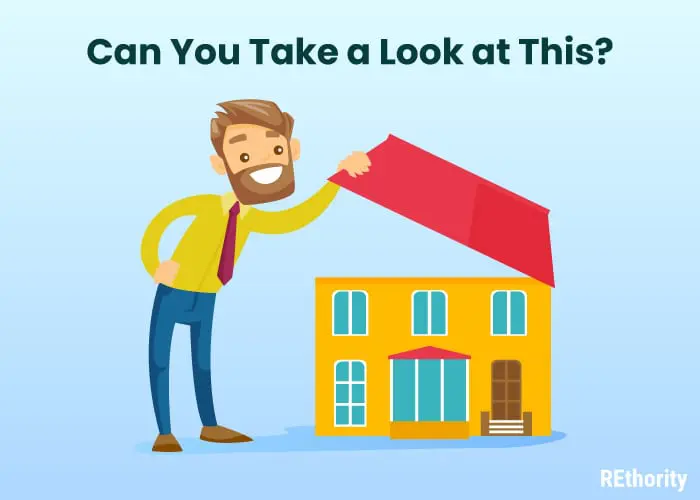
Maybe you noted a potential problem during one of your walkthroughs or want to double-check that something the seller fixed was done properly.
If you think there’s something your home inspector should take a closer look at, the inspection is the time to bring it up.
Ask even if you’re pretty certain there’s no problem. Your inspector is there to look over all potential issues. If you’ve picked up on something, it’s worth bringing up.
An experienced home inspector will probably ask you at the beginning of the inspection if there’s anything specific you’re concerned about. This is the prime time to address any concerns.
Think about the outside of the home as well. Standing water in the yard could indicate drainage or septic problems. Visible cracks or settling could show foundation damage.
Missing or damaged vents on the roof require replacement. Your home inspector will likely inspect all potential issues without prompting, but it’s smart to bring concerns up just to be sure.
6. Who’s the Best Professional to Fix This?
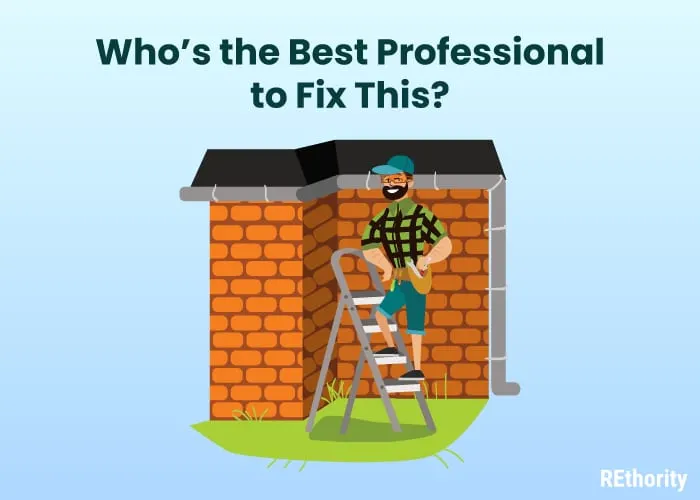
As an industry professional, your home inspector has likely worked with lots of different contractors and licensed professionals throughout their career.
If a problem is identified and you don’t have a go-to person or repair company to call, ask your inspector who they’d recommend.
Home inspectors can point you in the right direction for roofing, plumbing, electrical, foundation, appliance, and other types of repairs.
They’ve seen the work of tons of local companies and know which ones do good work. If they don’t have a specific recommendation, they may advise against using certain companies.
7. What Should I Know About Maintaining This?
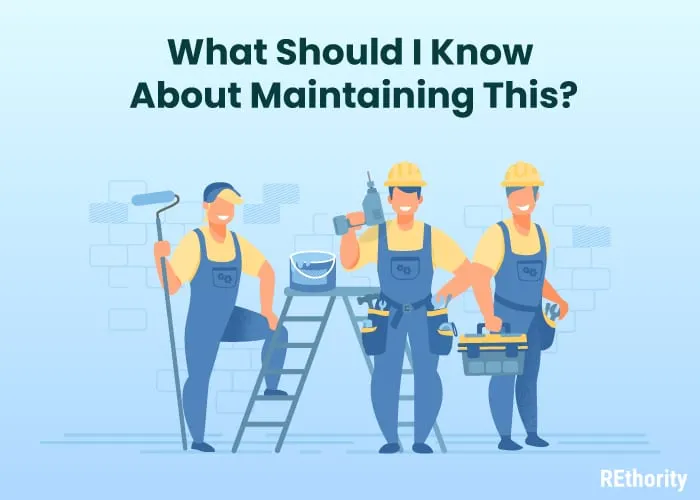
You might know a little about maintaining different appliances and features in a home, but your potential new home might have something in it that stumps you.
Maybe you’re from the south and have never seen a boiler, are unsure what to do to keep a septic system running smoothly, or are looking at a home that features an indoor hot tub.
No matter what it is, if it’s in the house you’re about to buy, it’s worth asking the home inspector about it. They may recommend things to avoid, home maintenance checklists, or professionals to call if future problems arise.
They might recommend getting rid of a problem-prone feature entirely. As an expert, it’s worth asking for their opinion.
The Best Question to Ask Home Inspectors After the Inspection
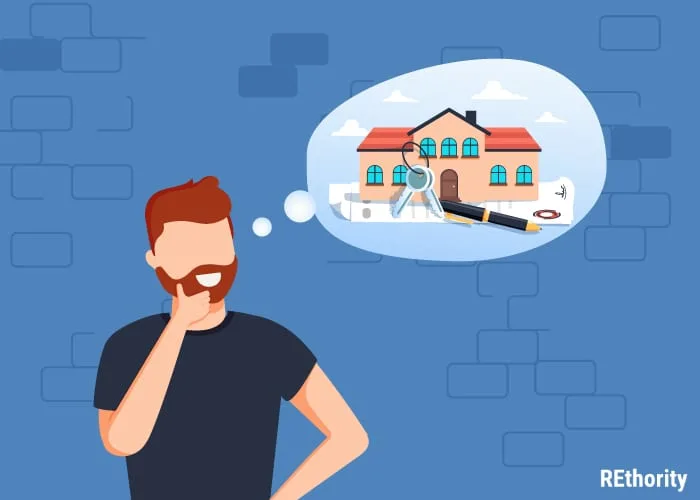
Once you’ve walked around and through the house with the inspector, there’s one final question you should address before they go:
What’s your biggest concern about this house? And if you were in my position, would you still buy it?”
Asking the home inspector questions as they analyze and check the house out will give you a lot of information, but sometimes just asking for their personal opinion at the end can be the most revealing.
They might surprise you by saying that, despite lots of small issues, the house still seems to be in great condition. They might say they’d walk away considering the amount of work and expense that will be required to make the repairs.
They could indicate that some repairs are worth making now, but others could be put on the back burner for a while. Relying on your home inspector’s years of experience can help you make a final decision after the inspection.
And if the results lead to you walking away and continuing to look for a house in better condition, you’ll know which inspector to call next time.

